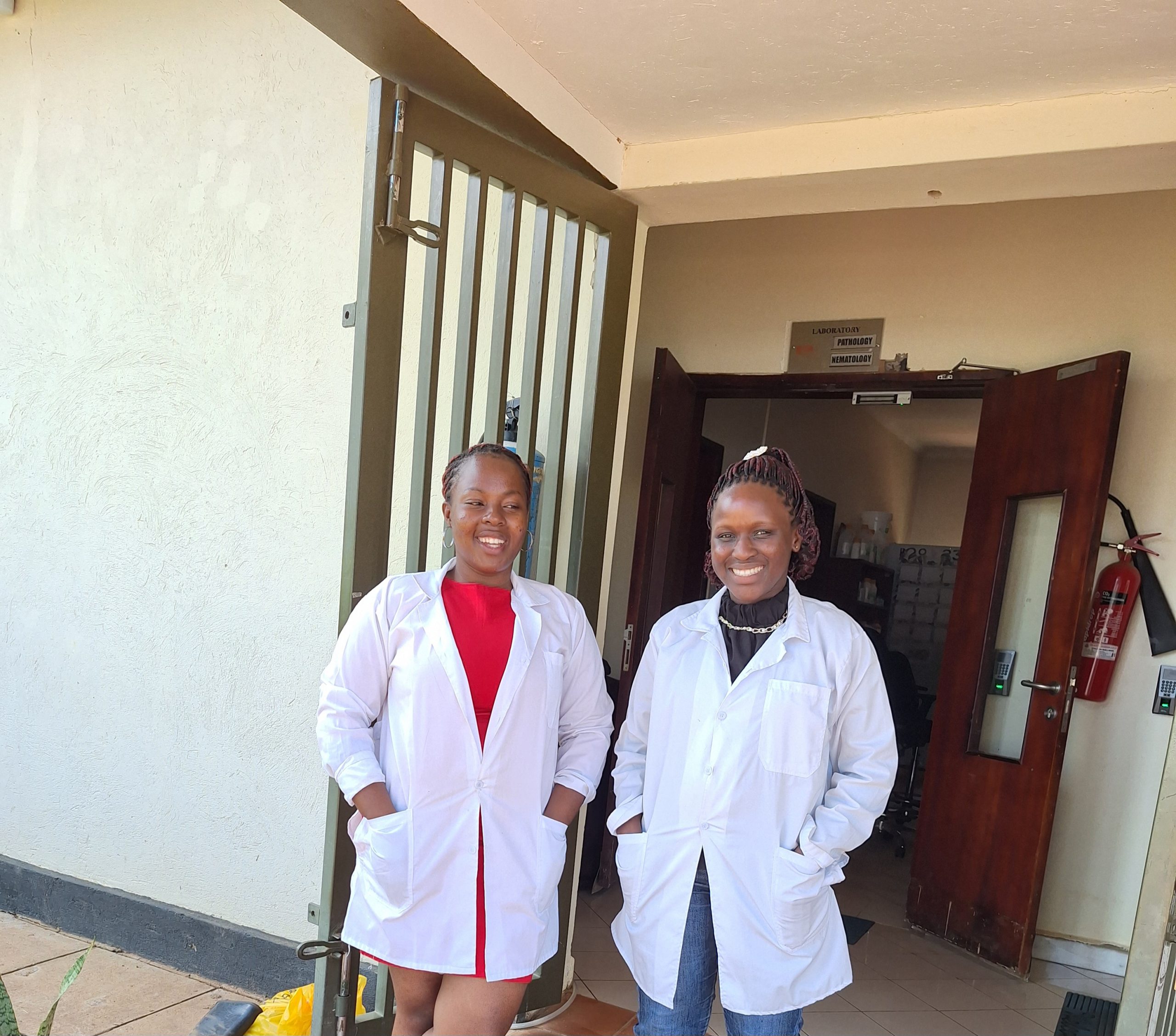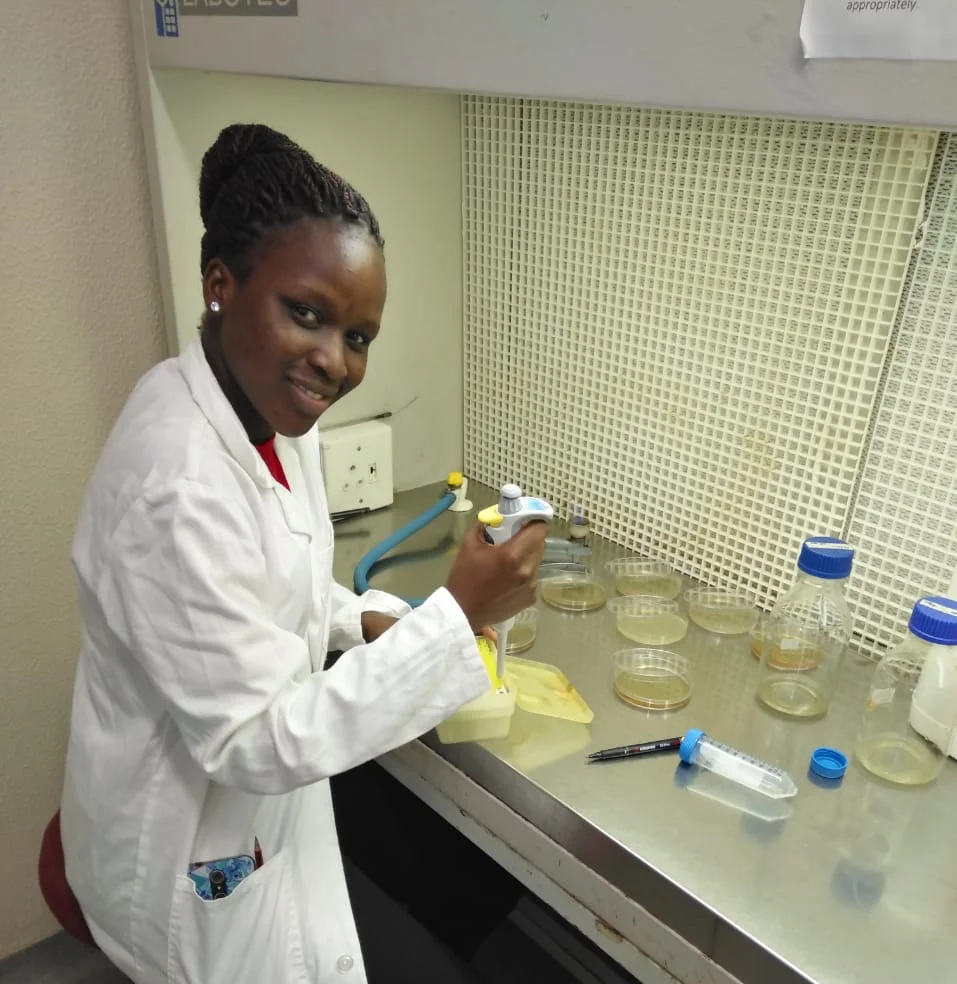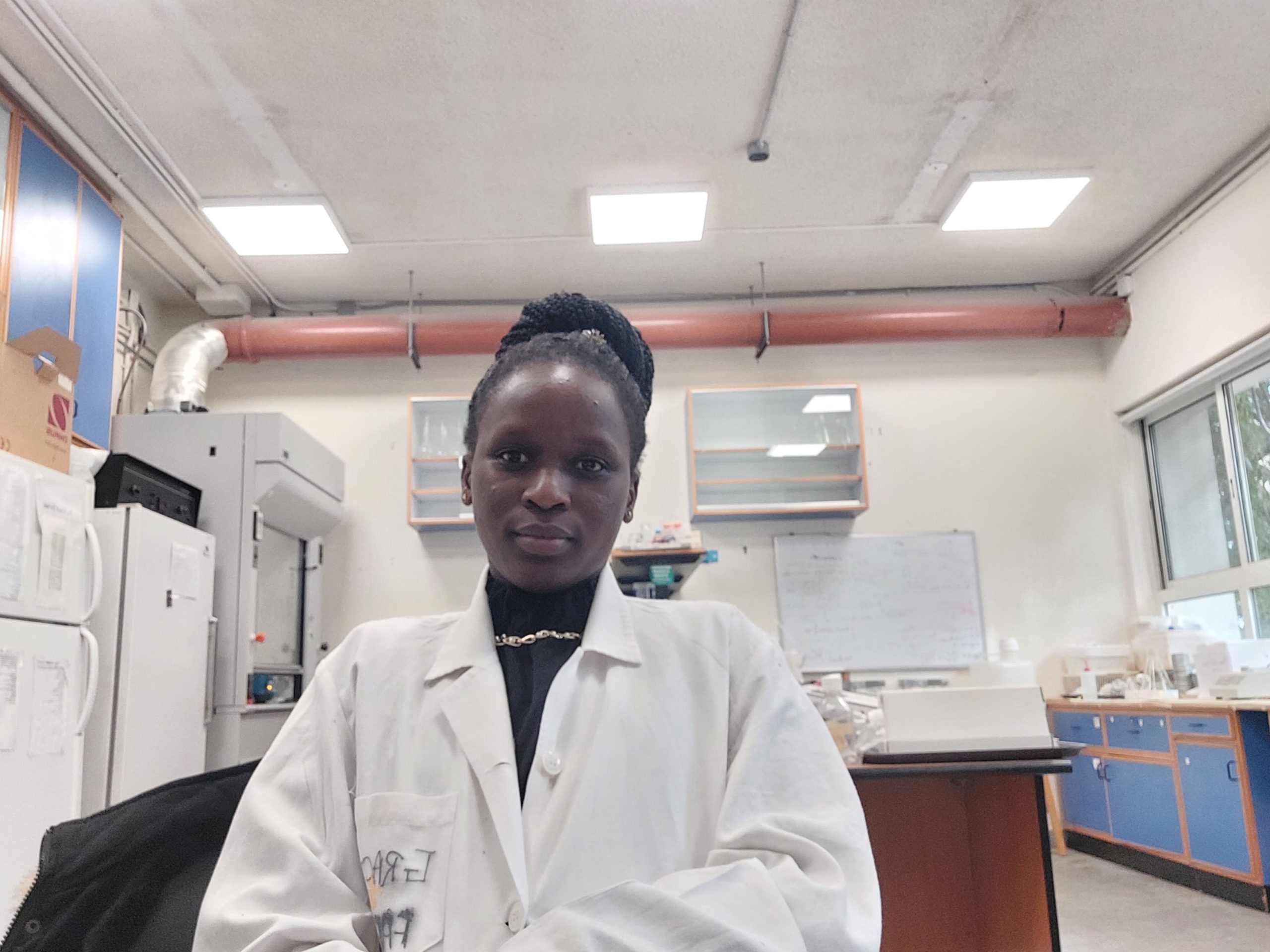Grace Aguti’s interest in the fields of science and agriculture started early on in life, helping her grandparents on their farm outside of the city. It was there that she began to learn the myriad of challenges faced by small farmers in her region. “I started saying, I think I can make these practices better to make more profits. That’s when I started getting a passion for agriculture.” As her father had passed away when she was young, she watched her single mother sell vegetables to support the family. The girls in her village were mainly focused on marriage prospects. And in her country, as in many places around the world, science was seen as a career for men.
Although Grace (Class of 2020, Uganda) had lived most of her early years in a small village outside of Kampala, Uganda’s capital, where academic opportunities were hard to come by, this didn’t stop her from pursuing her passion to study. She arrived at EARTH University in 2016 already committed to her passions: science and agriculture. In addition to a degree in Agricultural Sciences from our University, in 2023 Grace obtained a Master’s Degree in Plant Science from the American University of Beirut (AUB). She was also recently selected to be part of the Mastercard Foundation – EARTH University Fellowship Program, doing research for the International Institute of Tropical Agriculture (IITA) in her country. She has already come so far, but in talking with her one quickly understands she is just beginning a long and impactful career in the field of agriculture and science. Grace exhibited as strong determination to study, a natural aptitude for science, and a deep interest in agriculture. These qualities propelled her to excel as a high school student and eventually become a Mastercard Foundation Scholar. Reflecting on her journey, Grace remarked, “I opted for biological sciences and performed well in biology, chemistry, and agriculture, earning the opportunity to serve as a teaching assistant at my college. These experiences ignited my passion for science, one that is vividly captured in a photo of me wearing a lab coat in high school!”
Grace credits EARTH’s third-year Internship Program for giving her focus. As a Research Intern at the Institute of Plant Biotechnology of Stellenbosch University in South Africa, she studied bean physiology to genetically improve the crop’s tolerance to persistent drought. When she was accepted into AUB in Lebanon her world expanded again, providing new challenges and new opportunities to grow and learn. “At AUB, I had the opportunity to explore agriculture in a semi-arid environment. This experience broadened my understanding of the diverse challenges faced by different regions of the world. I believe that every agronomist should undergo such experiences to understand the global spectrum of obstacles we confront.”

For Grace, the Mastercard Foundation – EARTH University Fellowship Program she began in 2023 has been a key opportunity to get hands-on experience in her own country and work with IITA, an important organization in the sub-Saharan region that seeks to innovate agriculture and address problems on the African continent, such as hunger and poverty. Her research is focused on exploring microbial diversity and endophytic effects in various banana varieties across different agricultural environments, with a focus on regenerative agriculture, to enhance sustainable farming practices. She hopes to obtain a PhD in her field and become a professor of genetics and plant science, and she plans to continue to teach and do research in food security and sustainable practices.
Grace is deeply grateful for her scholarships from the Mastercard Foundation. “When the funding is there, it helps so much to study your area of interest. I would never have been able to attend high school, let alone buy the lab coats, the dissection kits, and the specific books needed for sciences. I learned then that a major challenge in the sciences is funding.” She also learned that to excel in science one needs to specialize. As most of the labs in her country are managed by men, one of the barriers she faced was breaking through the stereotype that women can’t handle specialization.

Aware of the continued gender disparity in the field of science, Grace is committed to supporting aspiring young scientists. “While there has been a slight increase in the number of women pursuing careers in sciences across Africa, the growth rate remains modest. I’ve advocated for the continued pursuit of science-related courses among high school and university students, and I’ve served as a role model to encourage women to embrace and excel in STEM disciplines. At AUB, I helped student researchers remain focused during the research process. Science requires us to go back, and things often don’t come out the way you expect. I like to assist young researchers in overcoming practical challenges, to help them bridge the gap between theory and experimentation.”
From a small village in Uganda to impacting research on some of the world’s most pressing food security challenges, Grace’s determination and her commitment to making the world a better place is an inspiring example for us all.
